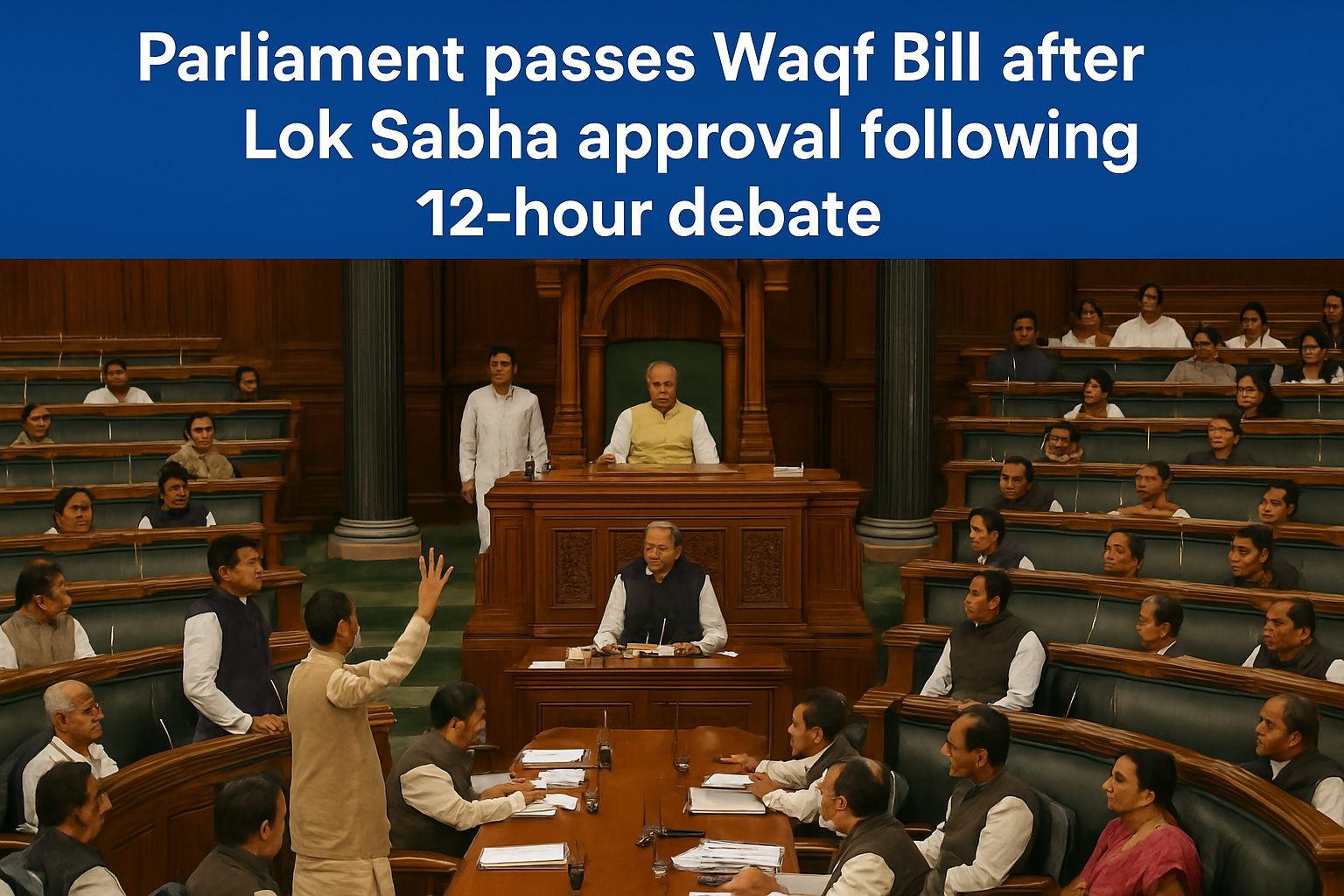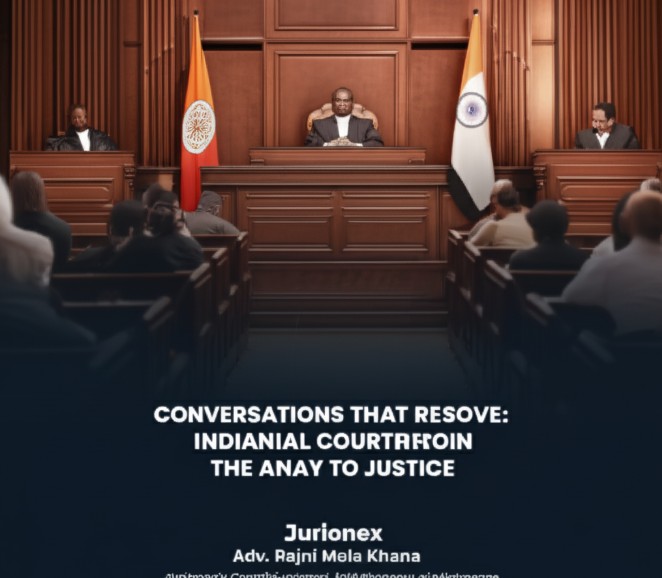The Budget session of Parliament convened on Friday (April 4, 2025) after two days of hectic debate in Lok Sabha and Rajya Sabha for the passage of Waqf (Amendment) Bill 2025. Not much business was transacted in either House before they were adjourned sine die. Jagdeep Dhankhar, Vice-President and Chair of the Rajya Sabha, informed the House that their productivity this session was 119%.
Parliament in the wee hours of Friday morning cleared the Waqf (Amendment) Bill 2025, after nearly 14-hour debate in Rajya Sabha by 128 members voting in favour and 95 against. The government maintained that the law is not directed against the Muslims, instead it only aims to bring transparency in the administration of Waqf properties, while the Opposition alleged that it was aimed at reducing Muslims as “second-class citizens” and questioned both “intent and content” of the bill. This sitting was the longest on record for the Rajya Sabha, Mr. Dhankar noted in his speech at the conclusion of the session. Waqf (Amendment) Bill | Analysis and explainers from The Hindu
The Lok Sabha passed the Waqf (amendment) Bill well past midnight on Wednesday after a marathon 12-hour-long debate, with Home Minister Amit Shah categorically assuring the Muslim community that the new Bill does not interfere with their religious practices.
Hours after the passage of Waqf (Amendment) Bill, 2025, and the Mussalman Wakf (Repeal) Bill by both Houses of Parliament, Prime Minister Narendra Modi on Friday (April 4, 2025) called it a “watershed moment”.

Top 10 updates on Waqf (Amendment) Bill, 2025 debate
The marathon debate in Rajya Sabha saw several clashes between opposition members and treasury benches. After Congress member Syed Naseer Hussain’s remarks slamming the government over the bill, Bharatiya Janata Party member Radha Mohan Das Agrawal targeted him, alleging that when he was elected to Rajya Sabha “Pakistan Zindabad” slogans were raised allegedly by his supporters in Karnataka.
Kiren Rijiju accused the opposition parties of trying to mislead people on the Waqf (Amendment) Bill and said it will benefit crores of people from the Muslim community. Rijiju added that several suggestions made by the Joint Parliamentary Committee had been incorporated into the revised bill.
Rijiju said there is no interference in the Waqf property by the government. He said once a property is declared a Waqf property, its status cannot be changed, and this has to be done by following the due process.
Kharge alleged that the ruling dispensation wants to take away the land of Muslims and hand it over to its corporate friends.
Leader of the House in the Rajya Sabha JP Nadda accused the Congress of making Muslim women second-grade citizens during its rule at the Centre. Participating in a debate on the Waqf (Amendment) Bill, the BJP leader said the Narendra Modi government brought Muslim women into the mainstream by banning the practice of triple talaq.
Nationalist Congress Party (SCP) MP Fouzia Khan said they will continue to protest against the Waqf Amendment Bill 2025.
Muzibulla Khan of the Biju Janata Dal opposed the Bill, saying the entire Muslim community was worried about it. However, his party leader in Rajya Sabha Sasmit Patra said the party has allowed its members to vote on their conscience and has not issued any whip. Sasmit Patra said he extended his support to the Bill.
The proposed legislation — which will be sent for President’s sign-off next – aims to amend the 1995 law governing Waqf properties.
Grand Mufti of Jammu and Kashmir Mufti Nasir-ul-Islam has stated that the Waqf (Amendment) Bill 2025 is against Muslims. He also noted the support of 232 members who voted against the Waqf Bill and said they are exploring the possibility of approaching the Supreme Court.
Read More: Rajya Sabha Passes Waqf Amendment Bill
What Waqf (Amendment) Bill says
According to the Waqf (Amendment) Bill, Waqf tribunals will be strengthened, a structured selection process will be maintained, and a tenure will be fixed to ensure efficient dispute resolution.
As per the bill, while Waqf institutions’ mandatory contribution to Waqf boards is reduced from 7 per cent to 5 per cent, Waqf institutions earning over ₹1 lakh will undergo audits by state-sponsored auditors.
A centralised portal will automate Waqf property management, improving efficiency and transparency. The bill proposes that practising Muslims (for at least five years) can dedicate their property to the Waqf, restoring pre-2013 rules.
It stipulates that women must receive their inheritance before the Waqf declaration, with special provisions for widows, divorced women and orphans.
The bill proposes that an officer above the rank of collector investigate government properties claimed as Waqf.
It also proposes that non-Muslim members be included in the central and state Waqf boards for inclusivity.
What is the bill about?
The waqf properties, which include mosques, madrassas, shelter homes and thousands of acres of land donated by Muslims, are managed by boards. Some of these properties are vacant while others have been encroached upon.
In Islamic tradition, a waqf is a charitable or religious donation made by Muslims for the benefit of the community. Such properties cannot be sold or used for any other purpose – which implies that waqf properties belong to God.
The government says that the waqf boards are among India’s largest landholders. There are at least 872,351 waqf properties across India, spanning more than 940,000 acres, with an estimated value of 1.2 trillion rupees ($14.22bn; £11.26bn).
A major criticism from opponents of the bill is that it grants the government undue power to regulate the management of these endowments and determine whether a property qualifies as “waqf”.
The bill also proposes the induction of two non-Muslim members on the waqf boards which oversee these properties. Critics have opposed this provision, arguing that most religious institutions run by non-Muslims do not permit followers of other faiths in their administration.






One thought on “Parliament passes Waqf Bill after Lok Sabha approval following 12-hour debate”